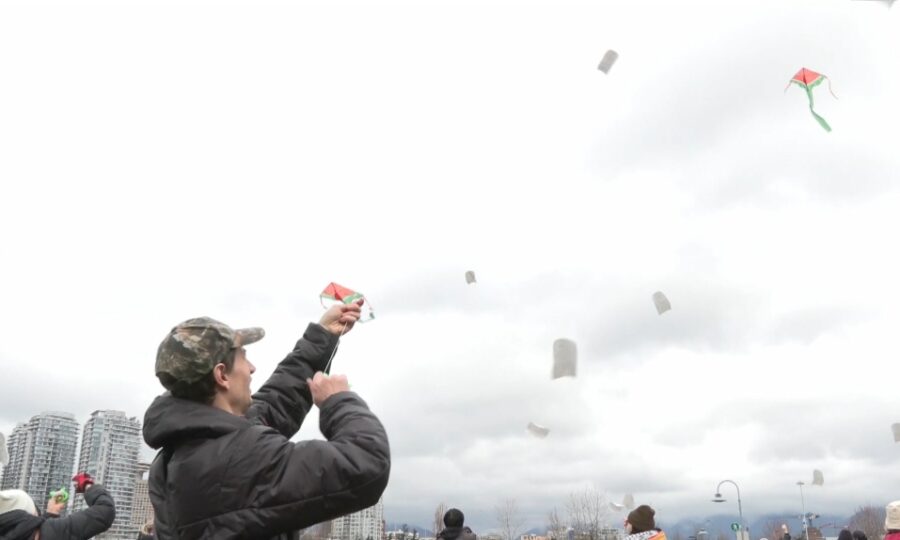On April 9, Jodi Dean published a blog post “Palestine speaks for everyone” for Verso Books in which she expresses support for Palestinian resistance. She has since been removed from teaching responsibilities (temporarily, until the end of term) by her employer, Hobart and William Smith Colleges.
I took special interest in this news because I’ve been influenced by Dean’s scholarship on solidarity. Her definition is a foundation for an article that Janet Jones and I recently published on solidaristic listening.
In a statement to the HWS community, President Mark D. Gearan both condemned Dean’s blog post and expressed a commitment to having difficult dialogues, a hallmark of university culture:
The Colleges recognize and affirm the importance of free dialogue on ideas. We have worked tirelessly to create an environment where we can discuss hard issues upon which we may disagree. But we can never and will never condone or praise violence, particularly when that violence is directed at individuals based on their religion, race or national origin.
The President’s condemnation addresses the tone and content of Dean’s post. He remarks that Dean “spoke about feeling exhilarated and energized by the paragliders on October 7, an event that has led to so much brutality against civilians in Israel and Gaza.”
This description doesn’t quite capture the complexity of Dean’s position. While the post does open with that provocative line about images of Palestinian paragliders on October 7 as “exhilarating” acts of resistance, Dean argues that reductive dichotomies, such as “good/bad Palestinians” or “bad violence/good resistance,” depoliticize movements for liberation and undermine anti-imperialist solidarity.
Violence as politics
As part of a unit re-thinking intersectionality, one of my classes read a 2021 critical exchange between Patricia Hill Collins and other feminist theorists about Collins’ Intersectionality as Critical Social Theory (Duke University Press, 2019). In that book, Collins argues that violence is a “saturated site of power relations” (p. 238). She describes violence as “conceptual glue” that binds systems such as racism, imperialism, and capitalism, as well as social practices and social institutions, together (p. 238). Conceptualizing violence in this way can make visible structures of domination.
In her part of the exchange, Kanisha D. Bond examines violence as a form of politics, rather than as a failure of politics or as an act that enables politics. Like Collins, Bond explores how violence may call attention to structural injustice. She also asks a further question, about the potential of violence to dismantle structural injustice. Dean’s post exemplifies the latter kind of project. She explicitly rejects analyses that suggest the current violence in Palestine is a failure of international law and human rights regimes and instead politicizes it as part of broader anti-imperialist, anti-occupation struggles.
Language and judgment
In our discussions on intersectionality and violence, my class watched this video clip in which Judith Butler, who condemns Hamas’ attack on Israel on October 7, uses the language of “armed resistance” to describe their actions. This language is important because it situates discussions within the historical and political context of occupation. With precise language, people can then debate the morality of such actions.
This aspect of Butler’s claims resonates with Dean’s refusal to reduce the current violence in Palestine to simplistic binaries. Yet Dean seems to resist moralizing violence at all. Doing so, she suggests, can depoliticize liberation movements because it depicts some acts as “good” resistance and some as “bad.” Moralizing language distracts from solidarity by making violence a question of an individual’s judgment. She states:
Even as appeals to intersectionality attempt to make connections between issues that four decades of neoliberal fragmentation have sought to keep apart, the liberal legal foundations of the concept too often position the individual as the intersection and the issues as questions of identity. Depoliticized at the level of organization, issues are repoliticized in and as individuals. What does an individual think? Does she feel comfortable expressing it? What expressions threaten this comfort and undermine her sense of safety? The constriction of politics to managing individual anxieties reframes self-centeredness as moral, whether on university campuses or in localities regulating public protests. This constriction is but one moment in the more general and systemic displacement of politics by moralism manifest in the substitution of aid work for militant political organization, administration for struggle, and NGOs and CSOs for revolutionary parties.
I disagree with Dean that moral judgments are necessarily individualistic. In contrast to Dean, judgment can be a communal endeavor, part of a robust public discourse. Yet her arguments raise questions for me about the differences between moral judgment and interpreting political acts. Moral judgments are often about deliberating action, but not necessarily understanding an action. Binaries between good/bad and right/wrong often reduce actions to a singular meaning, and such reductions impede attempts to understand.
Classrooms as spaces to negotiate meaning
President Gearan wants HWS to be a place for cultivating meaningful conversations. Yet his letter displays the kind of reductive political interpretations that Dean and Butler reject. It is this type of reduction that justified HWS’s removal of Dean from her teaching.
Discussing violence is difficult. Intersectionality asks us to be uncomfortable in situating ourselves within webs of power. Language matters when we are attempting to discuss the morality and political texture of such political acts. I think educators need to prepare students adequately to engage in having these difficult conversations, and they need to exercise compassion and be attentive to power when having such conversations.
Dean’s blog post, and the friction with Butler’s views especially, made me stop and think. It promoted me to have conversations with colleagues. This seems precisely the kind of conversation we would want to have in university classrooms.
Photo credit: CTV News Vancouver
